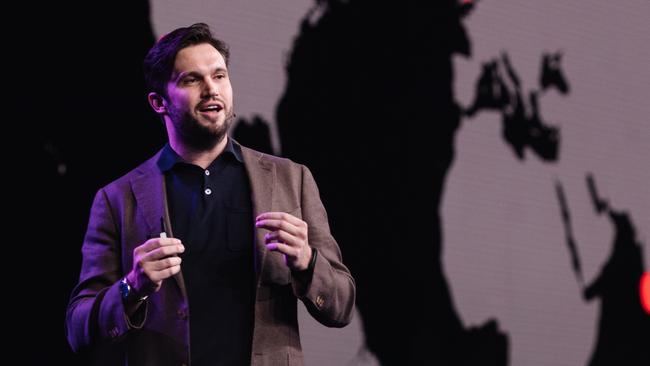Silicon Valley is much more than the sum of its brilliant people
The secret to the tech hub is mature management and leadership practices

Evan Cummack is one of Silicon Valley’s top executives, serving as general manager of internet of things and wireless at $50bn software company Twilio. He’s also one of the few with a heavy New Zealand accent.
San Francisco is a long way from Cummack’s childhood as one of three kids in a single-parent household in suburban Wellington but he knew very early that he wanted to wind up in the valley.
“I was about 12, and there was a movie called the Pirates of Silicon Valley, which came out in about 1999,” he says.
“I remember watching that with my friend, and we said ‘this is the coolest thing ever’.
“It was about the battle between Microsoft and Apple. From that moment on I said ‘I’m going to go to Silicon Valley’, even though I didn’t know where that was.
“I just knew it was near San Francisco, in America somewhere. It seemed like a really difficult, distant thing to do, but it wasn’t.”
Cummack is keen to encourage others to make the leap to the valley but he also argues that we may see a reversal of the “brain drain” now that we can do our work from anywhere.
His journey to the valley began when a family friend gave him a job building automated fingerprint identification systems of New Zealand police and the Department of Corrections. That work gave him the confidenece to go to San Francisco, where he was interviewed by Twilio CEO Jeff Lawson.
Back then, Twilio, was a start-up with a handful of people and a shoestring budget. Its platform allows developers for companies such as Uber, Airbnb and Netflix to add communications to their apps, including voice, video and messaging.
Cummack says the biggest misconception about Silicon Valley is that everyone who works there is insanely brilliant.
“I was really intimidated by this idea that the only people there are really outspoken, and really successful and intelligent,” he says. “And to be fair, there are a lot of very brilliant people in San Francisco. But the thing that it has more than anything else is good mature practices for building technology companies.
“I was blown away by the high level at which companies execute, more so than the individuals. People here think of management and leadership as a discipline. It’s not about authority: they just have a different role, and their role is management and organisation.”
It might be somewhat surprising for a culture sometimes described as toxic, but Cummack says Silicon Valley overall has developed healthy patterns that help teams execute at a high level.
“People have been saying since the 70s, or even earlier, that Silicon Valley is going to die, that it’s on its last legs, and there’ll be another one pop up,” he says.
“And it’s never happened. Every new major wave of computing, whether it’s the iPhone coming out of Apple, or the self-driving car companies right now, every major wave anchors itself in Silicon Valley.
“With COVID and the push for remote work that’s going to change a bit, but Silicon Valley has remained, and it’s still a real leadership hub for things such as how to build a company, how to do product marketing, and technology strategy.”
Cummack says Australians and New Zealanders are generally well prepared to tackle California, because our small markets mean company founders “wear many hats”.
New Zealanders have a phrase, “number eight fencing wire” — a reference to a gauge of steel wire used in rural fencing.
“It’s this idea that you can make anything out of very little,” Cummack says. “And I know there’s a lot of Australian spirit around the same idea. When you’re building a software company, and trying to adapt very quickly, your attitude goes a long way.”
But how can Australia and New Zealand block the “brain drain” and keep some of our best and brightest working in their home countries?
Cummack says both countries are inherently attractive to tech talent.
“There’s a lot to be said for working where you want to live,” he says. “They are both really beautiful countries, with great social systems, and some would argue very superior governmental systems, and if you want to build a profitable business you can do that in Australia or New Zealand.
“I would love the idea of working in the northern part of New Zealand, or Melbourne, and find a group of like-minded people there.
“I think we may see a change to this ‘brain drain’ dynamic, because Australia is one of the most desirable places to live, and now you really can work from anywhere.”


